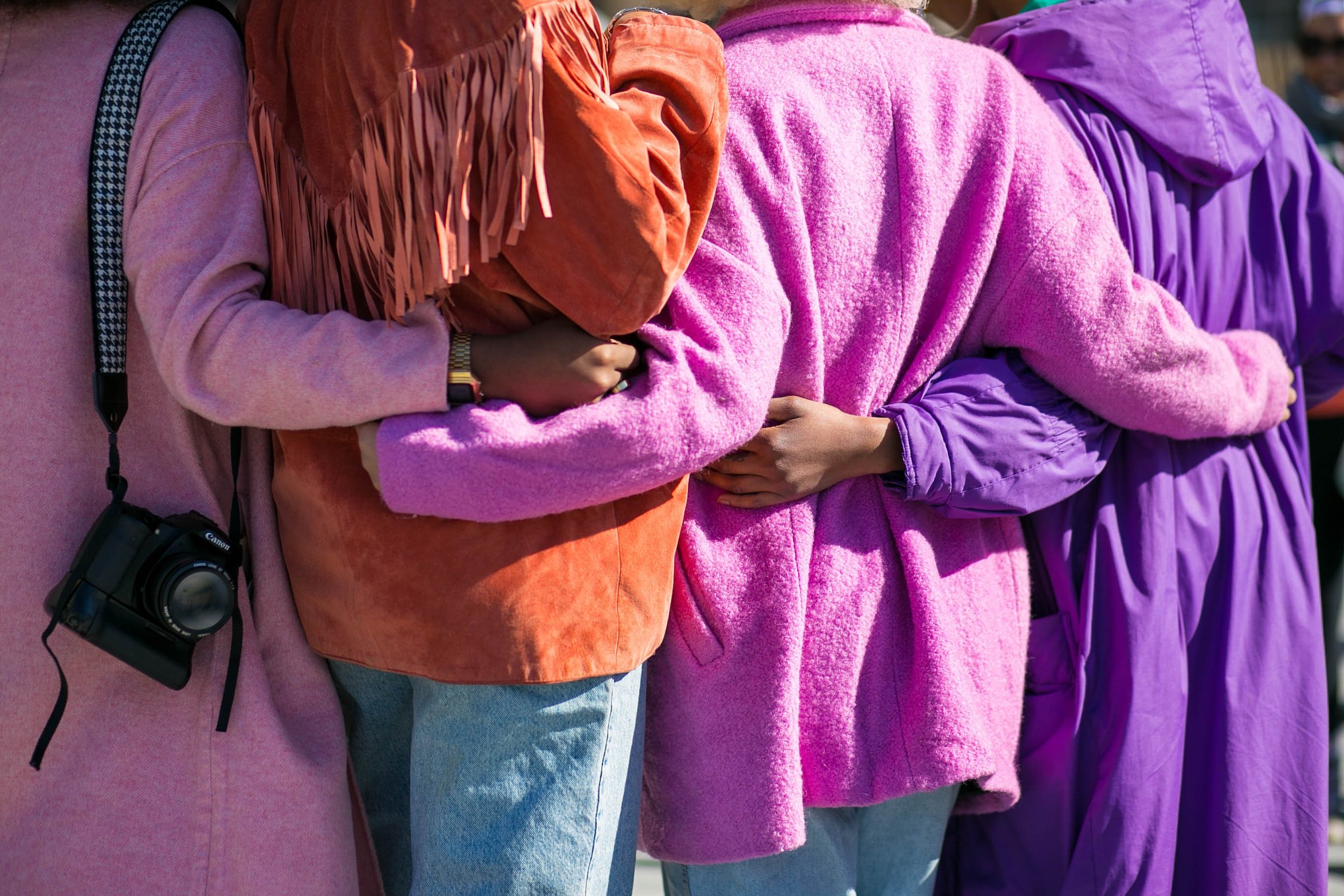Refugee Immigration Ministry (RIM) was founded in 1986 as an Interfaith Ministry whose purpose was to offer Spiritual Care in the detention facilities. As RIM has expanded to other services the collaboration between faith groups has brought volunteers together from many cultures and faiths to provide community-based services to uprooted and often isolated persons.
Currently RIM’s programs include: Spiritual Care Givers, English Classes (within the communities), Job Placement Assistance, Community-based Resettlement (Clusters).
RIM’s participating faith groups include: American Baptist, Buddhist, Episcopal, Hindu, Jewish, Lutheran, Muslim, Roman Catholic, Sikh, Society of Friends, Unitarian Universalist, United Church of Christ, United Methodist, and United Presbyterian.
Community–based support helps clients to prepare for employment and to make the cultural adaptation necessary for success. Not only does the community welcome provide friendship, acculturation opportunities and support for clients, at the most vulnerable time of their lives, but it is enriching for volunteers. By sharing faith practices, and cultural customs RIM volunteers are enriched and inspired.

By bringing uprooted people into a community they are able to build trust and can begin the process of rebuilding their lives.
Services for Asylum Seekers
Clusters are made up of representatives from several congregations in a given community who volunteer to work in an interfaith cooperative process to offer a community-based opportunity for clients to begin their new lives. Clusters work with Asylum Seekers to provide housing, food, transportation and community support until they are able to work.
When an asylum seeker is released, RIM requires that legal assistance and medical care is in place before a client is placed in a Cluster. The work of the Cluster is guided by a Case Management Plan which is developed with the client, the Case Manager and a Cluster representative. The most difficult issue which asylum seekers face is that they cannot work and are not eligible for any services until they receive asylum status. This can take from 18 to 24 months. RIM encourages clients to consider volunteer work in a setting which will enhance their credentials when they are ready for employment.
If you are interested in joining a cluster, visit our Get Involved page.
Learn more about RIM’s current Cluster network:
Clusters
Volunteers are from many cultures and faiths and speak many languages. They go into the facilities to listen. Often it is not possible to offer anything but listening, but this has a humanizing effect which can help the person begin to put his or her life back together.
This program has been very important in the face of the 1996 Illegal Immigration Reform and Immigrant Responsibility Act which calls for incarceration and deportation of persons who have prior felony convictions. This harsh legislation, which even Congress now admits was unwise, separates families, punishes people who have already served their sentences, puts future generations at serious risk, and is wasteful of taxpayer’s money. Many Americans are horrified when they realize how punitive this legislation is and want to do something. The Spiritual Care Givers program has been recognized by the Detention Watch Network as a model for this kind of volunteer chaplaincy program. RIM’s training program has been utilized in several parts of the country. RIM partners with LIRS to offer services in the Suffolk County House of Corrections.
Who is detained? In addition to those who are scheduled for deportation, often individuals who are seeking asylum may also be held upon entry to the U.S. Those seeking asylum have often fled their country and come directly to the U.S. Once they arrive they are held in detention until they have “a credible fear” interview. If they pass this interview they may be released, on the condition that they have a place to stay. RIM began its Cluster program as a response to this need.
Spiritual Care Givers

More than ever there is a need for the Spiritual Care Givers in the detention centers to let people know they are not forgotten.
The goal of the Case Management Plan is to foster independence. All of RIM’s services are guided by a Case Management plan. The foundation for Cluster work is Case Management and it is designed to guide the community-based support. The Case Manager guides the client with referrals and assessment of needs.
RIM is committed to an environment that is Open and Affirming, that is Trauma Sensitive, and that seeks at all levels to humanize the environment. Many clients have been subjected to war and/or violence due to their religious, ethnic, tribal affiliation or gender preference. Seeing the partnership of volunteers from various faith groups, ethnic groups and cultures is healing and reassuring for them. The faith based recruitment of volunteers provides individuals who are accountable to their communities. This offers a safe, welcoming environment for traumatized asylum seekers. Because GLBTI issues have come to the forefront as people are forced to leave their country over these issues, RIM has set up a welcoming spirit for all. Support groups are available for those who have dealing with trauma, uprootedness, GLBTI issues, and employment issues.
Case Management
RIM offers several programs which help clients prepare to enter the workplace:
ESOL: RIM offers ESOL classes to clients and to immigrants in the community who need to learn English.
Job Placement: RIM also has developed relationships with several employers and can assist clients in their job search.

